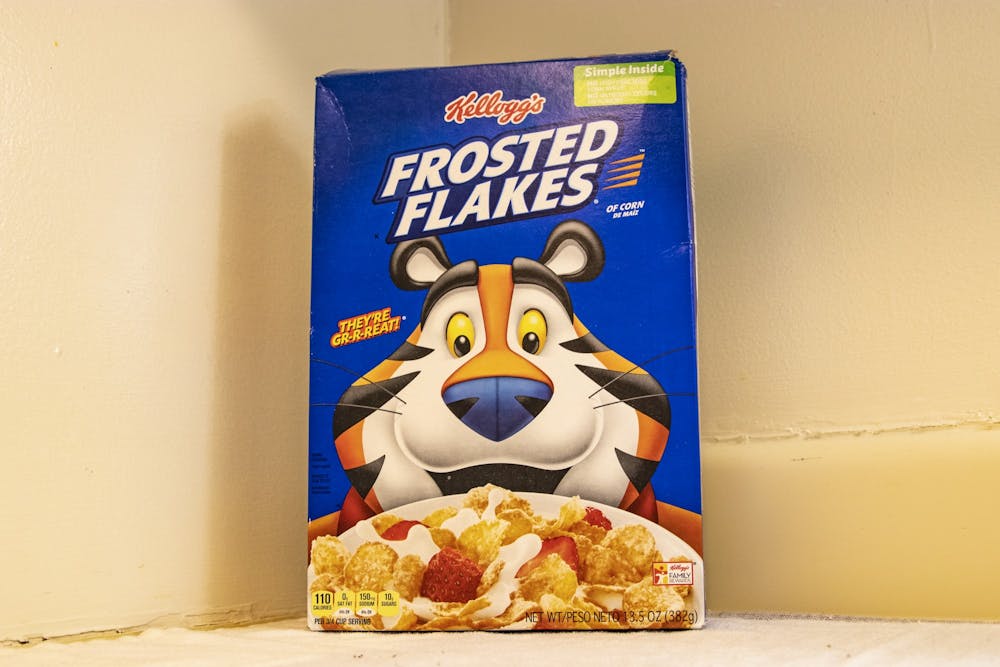When you hear the words “soup” and “salad,” the last thing you’re probably thinking of is cereal.
Soup is typically thought of as a liquid dish consisting of some type of meat and vegetables in a broth. Salad is typically thought of as a cold dish full of leafy greens and vegetables tossed in some type of dressing. However, these dishes barely scratch the surface of what soups and salads could be.
Soup and salad are food categories so loosely defined that their borders are almost hilariously vague. Soup really is just any liquid food dish, and salad is really just any mixture of foods.
There are countless types of salads that are a far cry from the standard Caesar salad, such as fruit salad, taco salad, egg salad, pasta salad, potato salad and many more. Same with soup, which includes gazpacho, chowder, gumbo and phở as well as much weirder soups, such as fruit soup and beer soup.
“Soup” comes from the Latin word “suppa,” meaning “to absorb liquid,” but what if cereal is a type of salad where the cereal is the meal with milk serving as a dressing?
The truth is, there is no real answer. Language changes through usage and many words have loose boundaries; words mean whatever we collectively decide they mean.
For example, we use the word sunrise even though the sun doesn’t rise at all, the Earth’s rotation merely turns us toward it. We clearly know now that there is no real “sunrise” or “sunset,” yet our language and its metaphors are still confined to eroded figures of speech.
American literary critic and philosopher George Steiner wrote on this subject in his book “The Poetry of Thought: From Hellenism to Celan.”
“The accelerando of the sciences and of technology, their mathematization have beggared both the reach and the veracity of natural language,” Steiner said. “From the perspective of the theoretical and exact sciences we speak a kind of Neanderthal babble.”
Language is inevitably full of obtuse and incomplete expressions and phrases. Words and categories may forever be without clear boundaries, but this does not mean they are all meaningless. Changing and debating language and meaning inspires human creativity.
Debating whether cereal is a soup or salad may only highlight the flimsiness of the English language, but what good would knowing everything do for the human mind and our sanity? Our “Neanderthal babble” is nevertheless all that we have to convey ideas and information, so fretting over its colloquial ambiguities is something we can’t help but do as a species.






